Showing 151–160 of 270 results
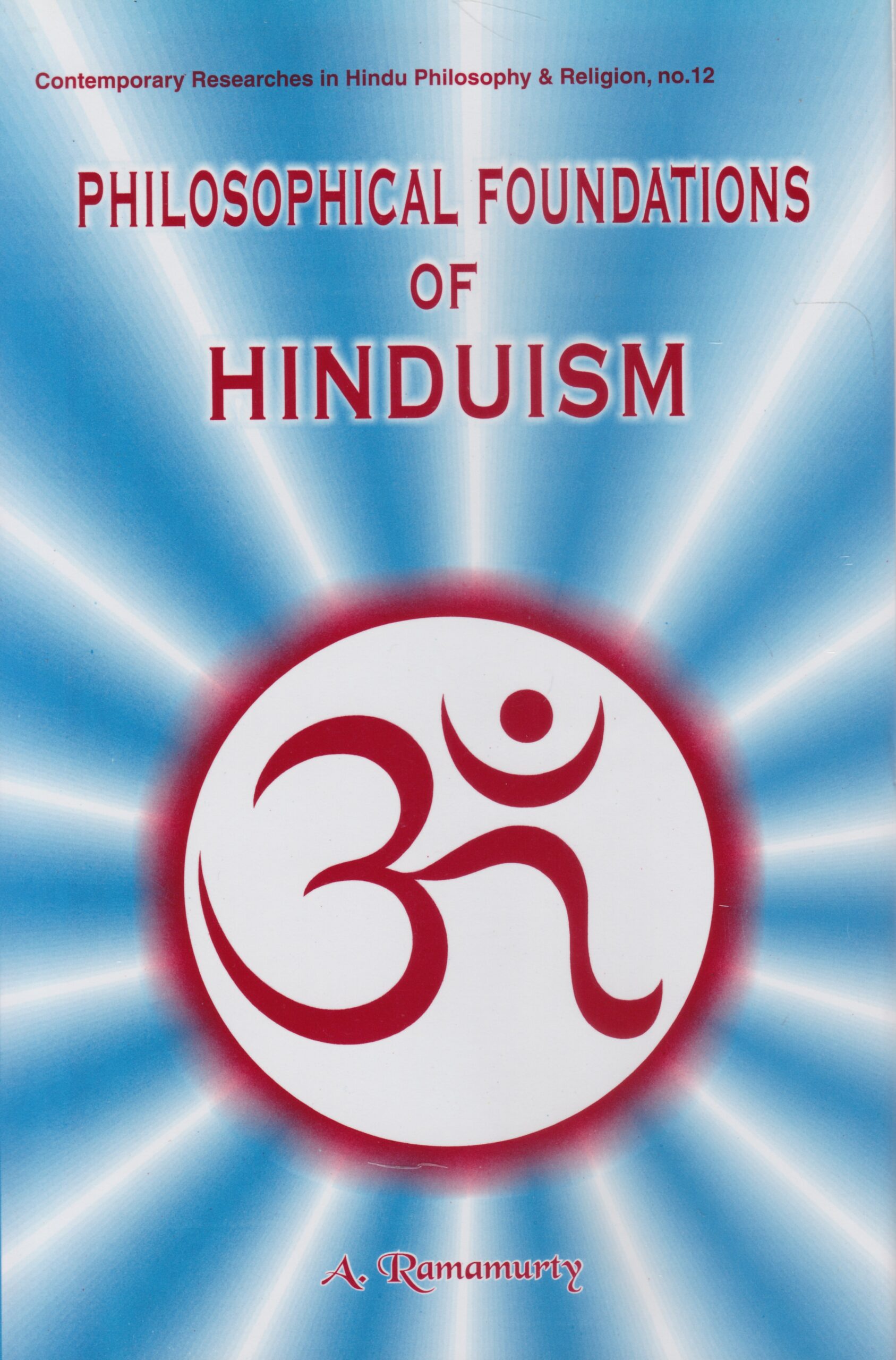
The book presents an understanding of the nature and meaning of Hinduism as revealed in its Sruti and Smrti traditions, examining certain essential aspects of the Hindu philosophical thinking, such as the meaning of dharma and religion, mans understanding of his own existence and reality and the Hindu conception of the divine.
The book presents an understanding of the philosophical roots of Hinduism: the nature and meaning of Hinduism as revealed in its Shruti and Smriti traditions. The discussion begins with an analysis of the Shruti and Smriti streams as integral to Hinduism and shows that the growth and development of Hinduism is a result of constant interaction and mutual influence of the two traditions. It then focuses on the unique Hindu world-view which is the major source of unity of Hinduisms diverse sects and sub-traditions. Prof. Ramamurty exminses in detail certain essential aspects of the Hindu philosophical thinking, such as the meaning of dharma as religion, mans understanding of his own existence and reality, the Hindu conception of the divine and human destiny according to Hinduism. Written in a clear style, the book, reflecting the authors deep scholarship in the subject, includes an index and a bibliography for the readers easy reference and further research on the subject.
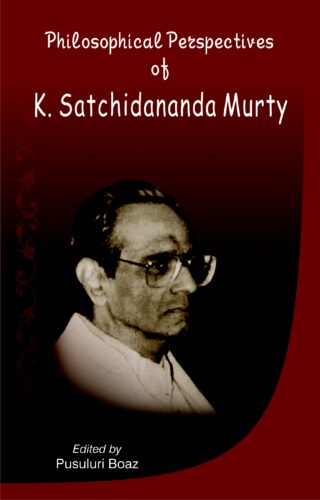
This book critically examines Prof. K. Satchidananda Murty’s understanding of philosophy within the framework of Indian ethos, philosophy and Vedanta. It also clarifies certain misconceptions about Indian culture and history, and further explores the basic issues of ethics and philosophy, man and the transcendent.
This book, on the philosophical contribution of Prof. K. Satchidananda Murty, critically examines his contribution to global under-standing of Indian ethos, philosophy and Vedànta. Dr Boaz explains that Murty has rightly interpreted Indian philosophy with reference to socio-political and physical conditions at different periods of Indian history.
Boaz presents that for Murty, man in his existential condition and world of experience does not satisfy himself with what is around him or what he perceives with his senses. This impulse of man and his intellectual pursuit further lead to know things beyond, which results in metaphysics. Here one explores the profoundity of Murty’s philosophy about man and the transcendent.
Prof. Murty’s spectrum of philosophy is far and wide, and extends to the Far East. With his wide understanding, he also addresses the Indian spirit and tries to clarify certain misconceptions about Indian culture, ethos and history, and adopts a humanistic approach to the study of philosophy as a whole.
This book is of great reference value to the students and teachers of philosophy for it reveals the extraordinarily different perspective of Indian philosophy by a philosopher of our times.

This collection of Prof. N.G. Kulkarni’s writings indicates a landscape of philosophical problems and reasoning towards an understanding of philosophical arguments. The book is divided thematically into four sections: Metaphysics; Language, Truth and Logic; Ethics and Religion; and Indian Philosophy.
This collection of Prof. N.G. Kulkarnis writings indicates a landscape of philosophical problems and reasoning towards an understanding of philosophical arguments. Like most philosophers Prof. Kulkarnis reflections also shaped his beliefs about fundamental notions like mind and body, truth and logic, reason and morality. His thoughts seem to move in both directions: the minute details and consequences of philosophical theses as well as the big picture, as it were, in terms of connecting the diverse themes of ones philosophical world.
The book is divided thematically into four sections: Metaphysics; Language, Truth and Logic; Ethics and Religion; and Indian Philosophy. Metaphysics deals with classic debates ranging from Kants critique of metaphysics, moving through Bradleys coherence theory of truth and the problem of universals and sense-data as well as problems of person and personal identity. Language, Truth and Logic surveys analytic philosophy and its main assumptions, and discusses the importance of logic and language that characterizes a significant part of the twentieth century and indeed shaped and continues to shape the twenty-first century. Issues in Ethics and Religion explore crucial ideas of freedom and violence, in addition to the meaning of the religious and the moral life. Indian Philosophy showcases his scholarly writings on Nyaya and Yoga as well as concepts in Jainism and Buddhism.
This volume should be of great interest to not only students and teachers of philosophy but also across disciplines. Anyone interested in understanding what philosophy is all about will learn one more way of thinking and doing philosophy.
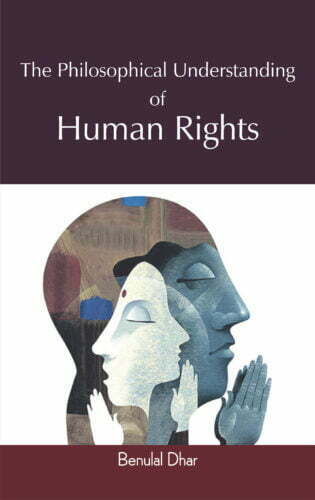
This book investigates the doctrine of natural rights and its critiques, and assesses the world-view which has shaped formulation of the theories of natural rights. It presents a clear exposition of some contemporary philosophical theories of rights developed independently of the natural rights paradigm and discusses the theories wherein the conception of rights is found to be compatible with utilitarianism.
Human rights is a topic that gets vividly and seriously debated at varied platforms, globally. The concept of human rights has a rich philosophical and theoretical tradition, and its philosophical dimension deserves proper attention. Having given an account of the origins and historical development of the idea of human rights, the book investigates the doctrine of natural rights and its critiques, and assesses the world-view that has affected its formulations.
The work also presents a clear exposition of some contemporary philosophical theories of rights developed independently of the natural rights paradigm and discusses the theories wherein the conception of rights is found to be compatible with utilitarianism. And, finally, while briefly arguing for discursive understanding of human rights based on the diversity of morals that is embedded in different cultural traditions of the world and for reconstruction of the conception of human rights in more inclusive and cross-cultural terms, the author analyses the conception of human dignity from the Vedantic perspective as a case study, which is regarded as an important underlying principle of human rights.
The volume is intended to introduce students and practitioners of human rights, and general readers to the philosophy of human rights.
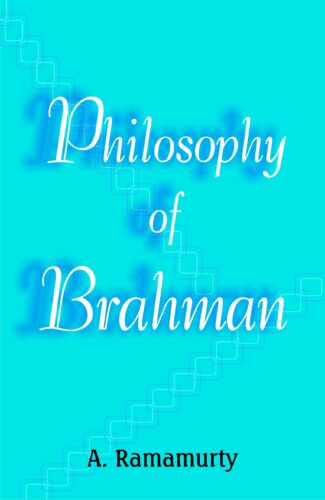
A profound work that addresses the major concern of ancient Indian metaphysical thought. Its discussion on the existence and nature of Brahman is simple and easy to understand. The book should be useful to scholars and students of Indian philosophy as well as to general readers.
This book is in one sense a critique of metaphysics usually viewed as an attempt to explain the existence of the world in terms of a reality which is regarded as the ultimate cause or source of the world, and in another sense to understand metaphysics as a profoundly significant attempt to know or understand the true or real nature of what is there, or what we all experience empirically, or the world. Most of the philosophers belonging to different schools of philosophy tried to understand the world in terms of a reality which is supposed to be the explanation of it. However, in the other approach to metaphysics which we discern in the philosophy of Shankara, and which is in tune with the basic insights of the Upanishads, a comprehensive attempt is made to know or understand the true or real nature of what we know empirically, or the world before any attempt is made to explain its existence. We therefore tried to analyse and understand critically the basic concepts involved in the ontological problem of Brahman, like the nature of the world, its causal explanation, nature and ontological status of matter, consciousness and its relation to spirit or self with a view to understanding the Advaitic insight that Brahman is the true nature of what we experience and know empirically, or the world.

The book focuses on meaning and linguistic representations, and links them to propose a representational theory of meaning. It shows that meaning as truth-conditions and as justification-conditions are equally rooted in the semantic space of language-use.
Surveying all the landmark developments in the recent philosophy of language, the book focusses on meaning and linguistic representations in its thematic effort to propose a representational theory of meaning. Meaning is the autonomous component of language: its semantic content and its essence as well. The book, thus, tries to link meaning with linguistic representations which, in themselves, not only are logico-grammatical structures, but also represent the world around us. Also attempting to reconcile the conflicting claims of the realists and the anti-realists, the author demonstrates how we have no choice between meaning as truth-conditions and meaning as justification-conditions, since both are equally rooted in the semantic space of language-use involving linguistic representations. Dr. Pradhans analyses have, at their base, his indepth, critical study of the theory of linguistic representation in Frege, Wittgenstein, Davidson, and Dummett. In sum, the book lends a forceful support to semantics and, more specially, to the autonomy of meaning. And the theory of representation, argued for here, promises to fulfil the twin theses of representationality and autonomy of meaning. It is an insightfully analytical work of immense usefulness to the scholars of philosophy concerned with linguistic representation, semantics and meaning.
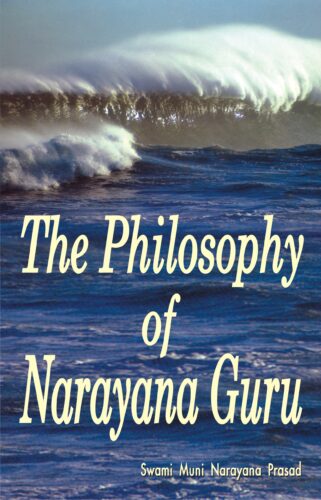
The book presents the essence of the philosophy of Narayana Guru, the noted philosopher-saint of modern India who reintroduced the essential Upanisadic content with a fresh appeal. Based on a thorough study of his works, it deals with his thought on ethics, aesthetics, religion, rituals and casteism.
Narayana Guru (1854-1928), a much-revered philosopher-saint of South India, revisualised the essential Upanisadic thought with a freshness of perspective. Further, he applied basic aspects of his Upanisadic philosophy successfully to bring about radical social transformations. This book deals with his philosophy as discussed in his major work, Atmopadesa Satakam (One Hundred Verses of Self Instruction) but incorporates views and ideas from his other works as well. The work focuses on Narayana Gurus philosophic thought dealing with the meaning of Vedanta, the way to seek Reality, the role of the individual in life, and karma, maya, the atma’s (self-)manifestation and sat-cit-ananda as the definition of the atma or Brahman and as the final goal. The various concepts are explained in relation to one another and from the viewpoint of achieving the final goal in life to present a unified thought construct that forms the core of Narayana Gurus philosophy. It also takes up the application of his Upanisadic philosophy in different disciplines like ethics and aesthetics and in practice of religion, temple-related matters and rites. The book will be particularly useful to scholars, teachers and students of Vedanta as well as all educated seekers of Reality.

Noted Indian philosophers present an open-minded evaluation of Wittgensteins philosophy of language from fresh perspectives to bring out its contemporary significance. They examine Wittgensteins theories on the limits and structure of language, operationalism in philosophy of language, idea of a private language, necessity of mathematics and logical truths, and grammar of the language of emotions.
The book is open-minded evaluation of Wittgensteins philosophy of language from fresh perspectives to bring out its contemporary significance. Including papers presented by noted Indian philosophers at a naional seminar, it examines the special place of WIttgenstein in the development of philosophy in the West in the twentieth century. The papers offer an in-depth critique of Wittgensteins theories on the limits and structure of language, operationalism, in philosophy of language, idea of a private language, necessaity of mathematics and logical truths, grammer of the language of emotions and language as a liberating force. Throughout the attempt is to analyse Wittgensteins contributors vis-a-vis Indian philosophical thinking and trace and the similarities between him and Indian thinkers. The work, for instance, includes a detailed study of Wittgensteins notion of silence and its affiliations with silence as interpreted in the Nyaya system and identifying the common factors in Gandhi and Wittgensteins approach to western civilisation. It also presents a radically different understanding from what is traditionally understood of the Wittgensteinian concept of picture. The work will prove immensely useful to scholars concerned with linguistic representation and meaning in general and Wittgensteins contributors to philosophy of language in particular.
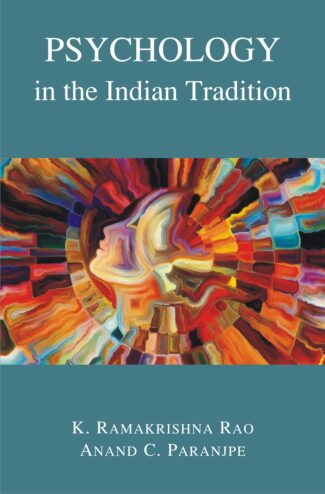
This authoritative volume draws the contours of Indian psychology, describes the methods of study, defines the critical concepts, explains the central ideas, and discusses their implications to psychological study and application to life.
Professors Ramakrishna Rao and Anand Paranjpe are two distinguished psychologist-philosophers who pioneered what has come to be known as Indian psychology. In this authoritative volume, they draw the contours of Indian psychology, describe the methods of study, define the critical concepts, explain the central ideas, and discuss their implications to psychological study and application to life.
The main theme is organized around the theme that psychology is the study of the person. They go on to present a model of the person as a unique composite of body, mind, and consciousness. Consciousness is conceived to be qualitatively and ontologically different from all material forms. The goal of the person is self-realization, which consists in the realization of the true self as distinct and separate from the manifest ego. It is facilitated by cultivating consciousness, which leads to some kind of psycho-spiritual symbiosis, personal transformation, and flowering of ones hidden human potentials.

This authoritative volume draws the contours of Indian psychology, describes the methods of study, defines the critical concepts, explains the central ideas, and discusses their implications to psychological study and application to life.
Professors Ramakrishna Rao and Anand Paranjpe are two distinguished psychologist-philosophers who pioneered what has come to be known as Indian psychology. In this authoritative volume, they draw the contours of Indian psychology, describe the methods of study, define the critical concepts, explain the central ideas, and discuss their implications to psychological study and application to life.
The main theme is organized around the theme that psychology is the study of the person. They go on to present a model of the person as a unique composite of body, mind, and consciousness. Consciousness is conceived to be qualitatively and ontologically different from all material forms. The goal of the person is self-realization, which consists in the realization of the true self as distinct and separate from the manifest ego. It is facilitated by cultivating consciousness, which leads to some kind of psycho-spiritual symbiosis, personal transformation, and flowering of ones hidden human potentials.
| There are no products |